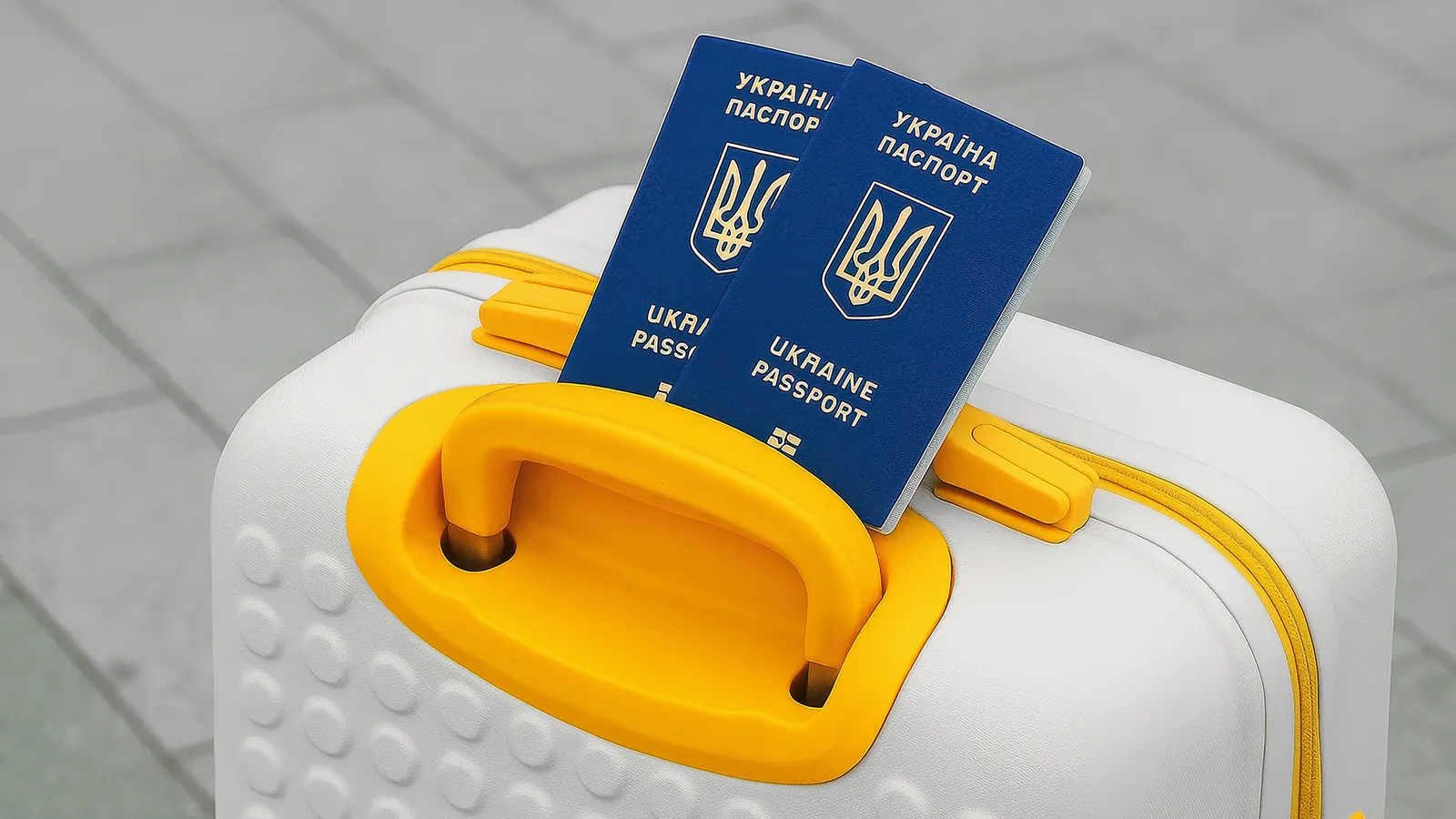
Since the start of the war in Ukraine, thousands of Ukrainian refugees have found safety and support in the Netherlands. But now, many of them are facing new, practical questions: “Can I travel back to Ukraine to visit family?” “What happens if I leave the Netherlands for a few weeks?” “Will I lose my protection status?” The good news is that temporary travel is allowed—but there are important rules and limits.
Who Is Able to Leave the Netherlands Temporarily?
The EU Temporary Protection Directive (TPD) offers protection to Ukrainian nationals who entered the territory of the Netherlands after November 27, 2021. This means that you can travel (within certain limits) and maintain your refugee status.
Non-Ukrainian residents of Ukraine, for example, students or foreign workers who had a residence permit before the war, may also be covered by the TPD, but the rules are stricter. In some cases, leaving the Netherlands could lead to the loss of legal protection.
How to Keep Your Protection Status Abroad
The key to protecting your status while temporarily out of the Netherlands is complying with the laws of the country. You’re allowed to be away for up to 28 days per calendar year without risking your benefits or registration. If you overstay more than that, and do not inform your local municipality of the whereabouts, you would have lost access to housing, health care, and other forms of support.
It is advisable to inform the gemeent before travelling, particularly if you believe the duration of your stay might be lengthened. Always keep proof of your residence in the Netherlands and bring all essential documents with you when traveling.
Coming Back to the Netherlands
Ukrainian nationals living in the Netherlands under temporary protection can travel to other Schengen countries or to Ukraine without a visa. However, if you’re outside the Netherlands for more than 28 days, you could risk losing access to housing or benefits.
When returning to the country, border authorities will probably ask for a passport and identification documentation of the IND. If your papers are not complete or are expired, you can be questioned or, in the rarest cases, you can be refused entry. It is important to carry with you anything you could need to prove your legal status and residence.
What You Need to Know about Travel Rules and Documents
You can take a trip for 28 days without affecting your refugee status. If you remain away longer than that, there is the risk of removal from the municipal registry and loss of benefits.
Where Can You Go?
You can travel to Ukraine or within the Schengen Area for up to 90 days without a visa, but if you’re gone from the Netherlands for more than 28 days—especially without informing your municipality—you risk losing access to housing or even your protection status.
What Documents Should You Take With You?
When temporarily leaving the Netherlands, it’s important to carry the right documents to avoid any issues when returning. Be sure to take:
- A valid biometric Ukrainian passport (with at least 6 months of validity);
- Your IND sticker in your passport or your O-document confirming your status;
- Proof of residence in the Netherlands (such as a letter from your municipality or registration from your shelter);
- A return ticket, if you have one — this helps show you intend to come back.
Things to Keep in Mind Before You Travel
Before you leave, think carefully about your travel dates, the reason for your trip, and how long you plan to be gone. Missing that 28-day limit—even by a few days—can result in serious consequences, including losing your place in a shelter or no longer qualifying for financial support. Also, check that your IND documents are still valid. If they expire while you’re away, you may not be allowed back into the country.
Travel Could Affect Your Refugee Status
Not every trip causes problems, but certain situations can lead to losing protection. Be cautious if:
- You’re gone for more than 28 days without notice;
- You travel to a country outside the EU/Schengen Area;
- Your documents expire or are lost while abroad;
- You’re a non-Ukrainian who returns to your country of origin, which could be seen as voluntarily ending your stay in the Netherlands, and your status could be withdrawn.
What to Do if You’re Denied Re-Entry
If you’re stopped at the border and told you can’t come back in:
- Stay calm and cooperate with authorities;
- Show your passport, IND sticker or O-document, and any proof of Dutch residence;
- You may be interviewed or held temporarily while your case is reviewed.
If re-entry is officially denied, don’t panic—seek legal help immediately. You may be able to appeal the decision or apply for re-entry with support from your local municipality or legal organizations.
Conclusion
So, can Ukrainian refugees temporarily leave the Netherlands? Yes—but it comes with responsibilities. Stick to the 28-day absence limit, always bring the right documents, and notify your gemeente when necessary. That way, you’ll avoid unnecessary problems and keep your protection status secure.
Whether you’re traveling for family reasons, a personal emergency, or just to visit home, preparation is key. If you’re unsure, talk to a legal advisor or check with the Dutch Immigration and Naturalisation Service (IND) before you go.
Frequently Asked Questions (FAQ)
How long can I be outside the Netherlands without losing my status?
You can be gone for up to 28 days per year without losing your housing or benefits. Longer absences may lead to deregistration.
What documents do I need to travel?
Bring your biometric passport, IND sticker or O-document, and proof of residence. A return ticket is also helpful.
Can I visit Ukraine and come back?
Yes. You can stay in Ukraine (or any Schengen country) for up to 90 days visa-free. If you stay longer, you’ll need extra documentation from IND to return.
What happens if I stay away too long?
You may lose your registration, your place in a shelter, or your financial support. Contact your gemeente or the IND immediately upon return.
How can I prove why I left?
Bring medical records, tickets, or documents that explain your reason for traveling. This can help if questions arise at the border.
Can I be refused re-entry into the Netherlands?
Yes—especially if your documents are expired or you’ve been gone too long. In that case, you may be interviewed or held at the airport.
What should I do if I’m denied re-entry?
Contact a legal advisor or refugee organization right away. You may be able to appeal or request assistance from Dutch authorities.






